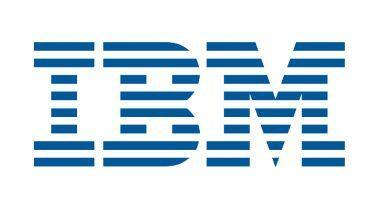IBM has just taken a decisive step in the field of renewable energy asset performance management through the acquisition of Prescinto, an innovative company specializing in SaaS for asset management (APM). This move occurs in a context where renewable energies are becoming increasingly important due to rising investments in technologies such as wind and solar. By incorporating Prescinto’s capabilities, IBM aims to strengthen its position as a leader in the renewable energy and utility sectors, thus supporting sustainability initiatives by enabling sophisticated and real-time tracking of energy resources.
IBM recently announced the acquisition of Prescinto, a leading provider of asset performance management (APM) solutions as software-as-a-service (SaaS) for renewable energies. This acquisition will enhance the IBM Maximo application suite, thereby consolidating IBM’s position in the energy and utilities sector. By integrating Prescinto’s artificial intelligence capabilities, IBM is able to improve advanced monitoring, analytics, and the automation of clean energy operations. This meets a growing demand for solutions to effectively manage and optimize renewable energy assets, such as solar panels and wind farms.

IBM and the strategic acquisition of Prescinto
By strengthening its position in the renewable energy market, IBM reveals a growing interest in intelligent asset management. With the purchase of Prescinto, a provider of SaaS software for asset performance management (APM), the company is exploring new dimensions of automation and analytics. This acquisition fits perfectly within the current dynamics where effective management of renewable energy is essential for industries seeking to optimize their resources while reducing their carbon footprint.
The implications of the acquisition for the IBM Maximo application suite
The IBM Maximo suite, already recognized for its excellence in asset lifecycle management, will benefit from Prescinto’s advanced technologies. With integrations such as AI and IoT, this platform will now be able to provide a more accurate and dynamic view of the performance of turbines and solar panels. Not only does this optimize operations, but it also helps to reduce operational costs by detecting and resolving problems before they become critical.
Impact on the renewable energy sector
There is no doubt that this acquisition marks a turning point in how companies approach sustainability and renewable asset management. Prescinto’s technologies, with their ability to capture and analyze data in real-time, enable the quick identification of potential energy losses and advise on actions to take to maximize returns. For example, by utilizing these technologies, a solar plant could anticipate a decrease in its performance and intervene before debris accumulation becomes a major issue.
Le Chef de l'État @GeneralNeva rappelle aux fonctionnaires de l'État qu'ils vont prochainement être cotés sur la gestion des performances et que les paresseux et les incompétents seront remerciés pic.twitter.com/Cz0TqDJKE6
— RTNB (@RTNBurundi) April 11, 2021
Articles similaires
Thank you!
We will contact you soon.














